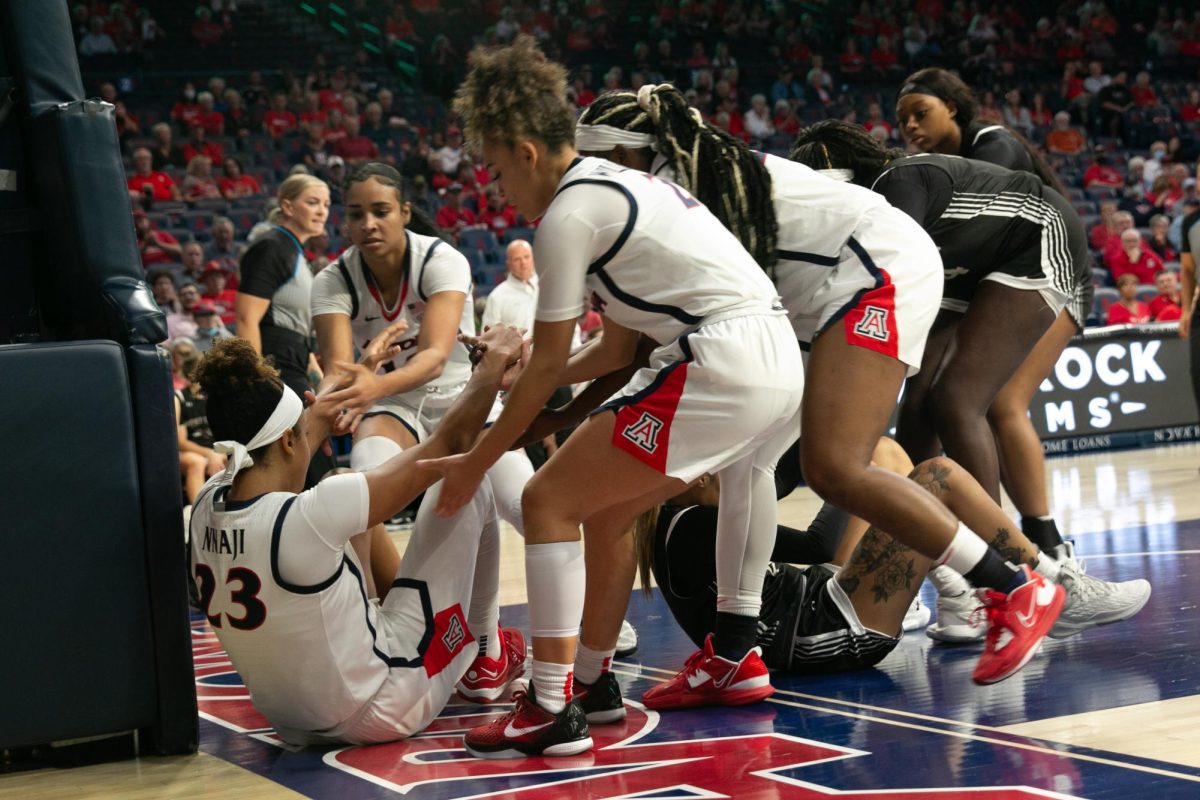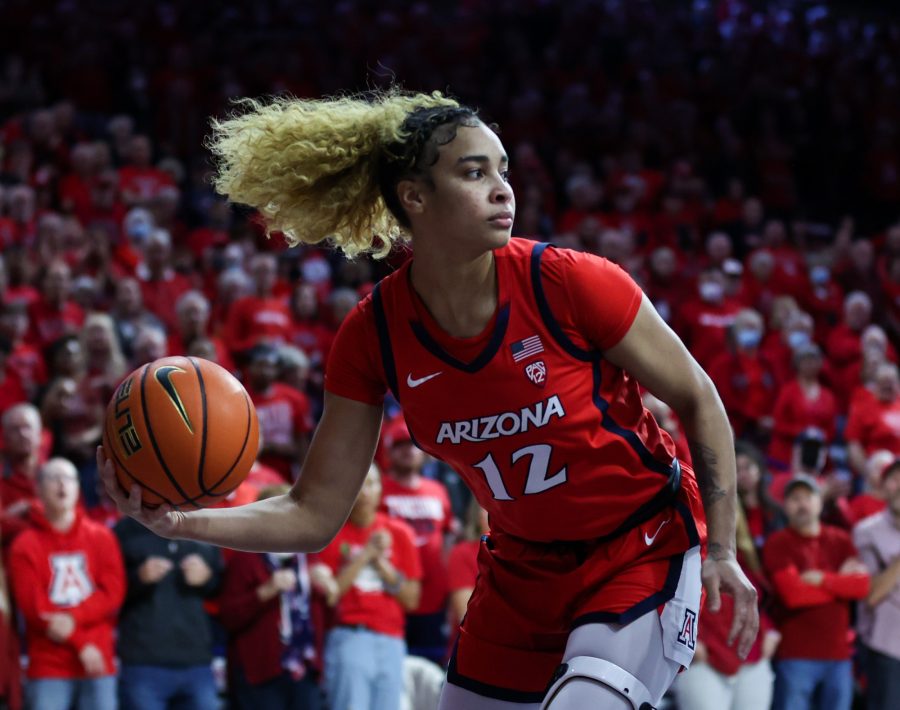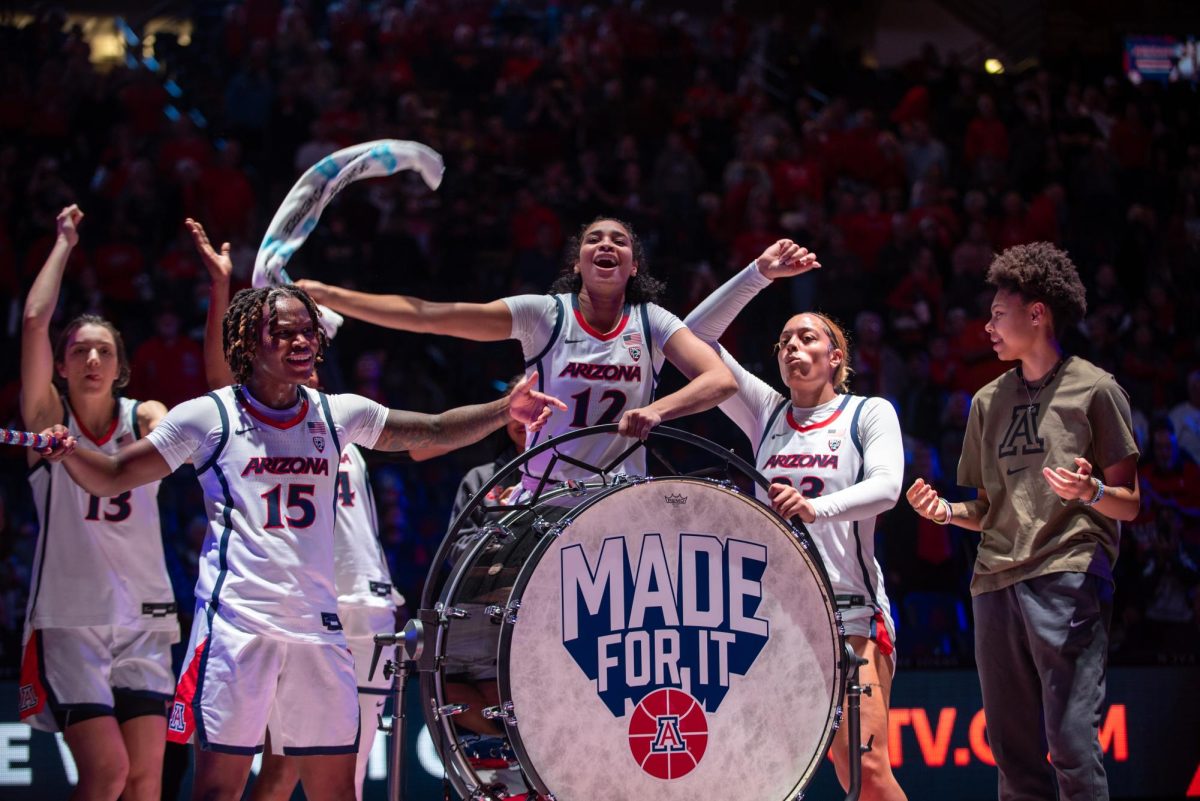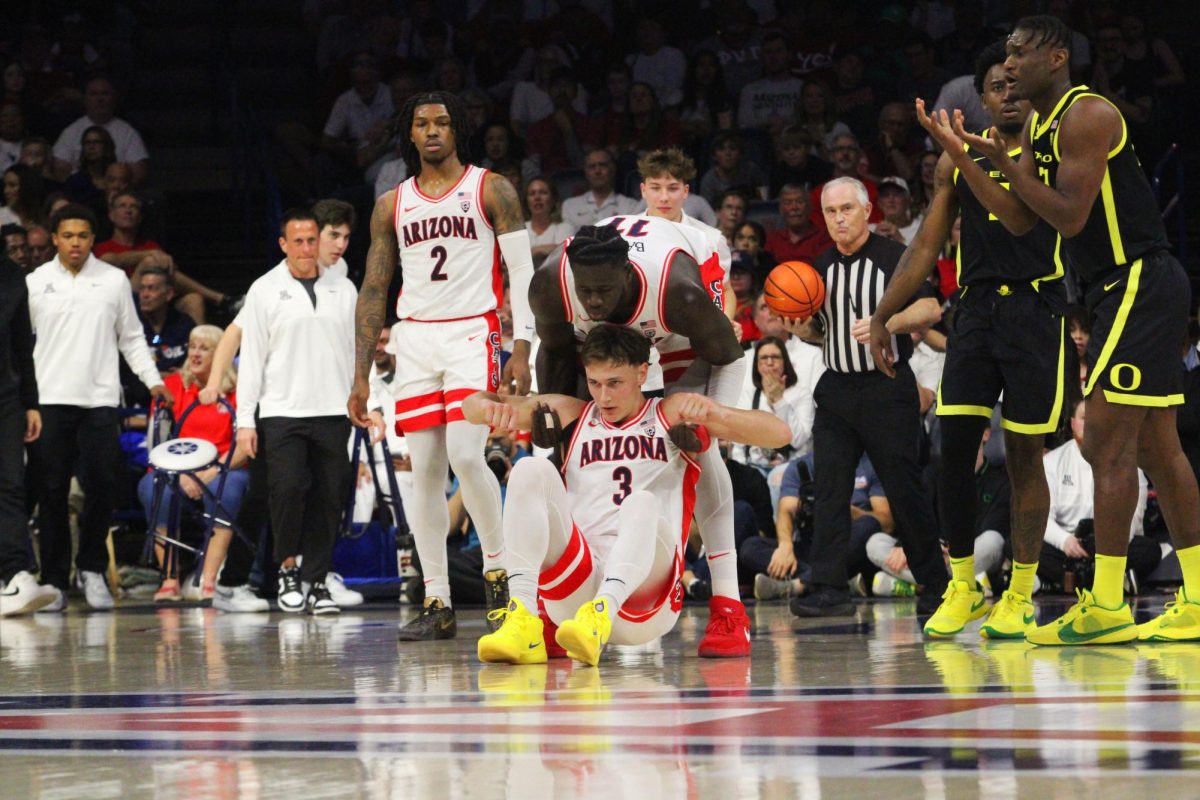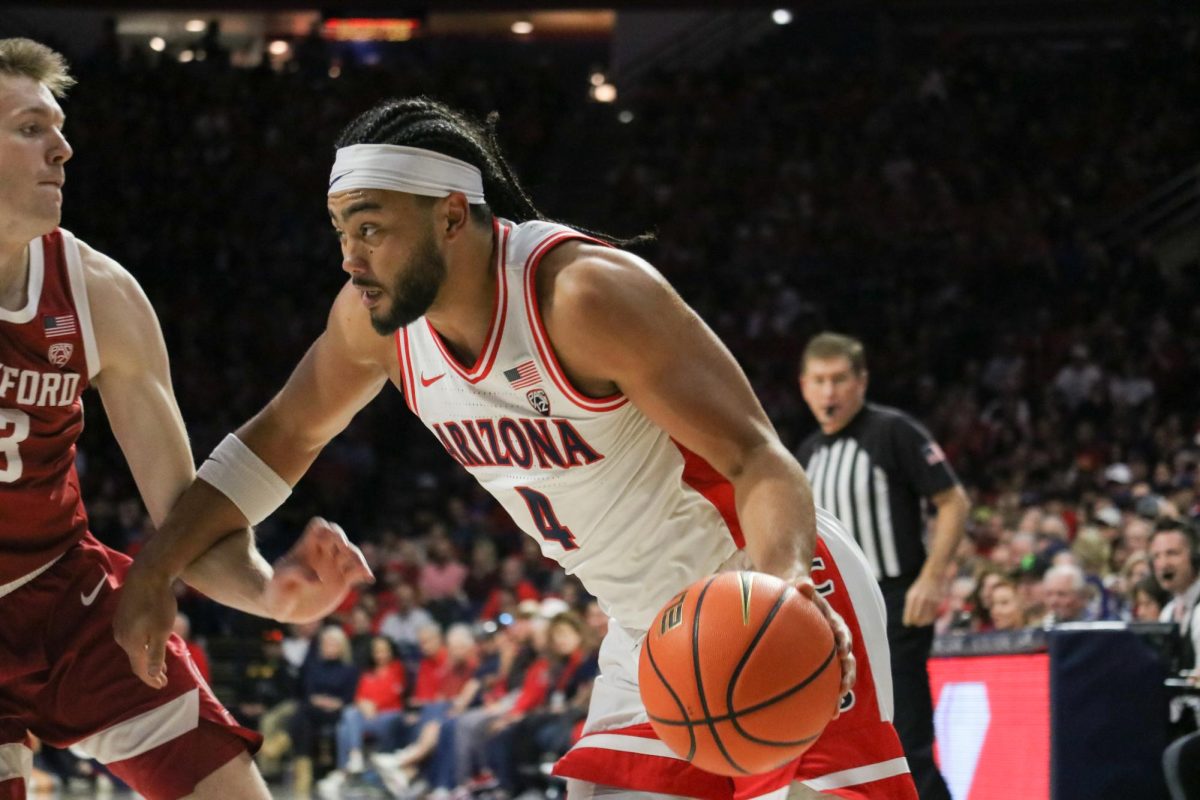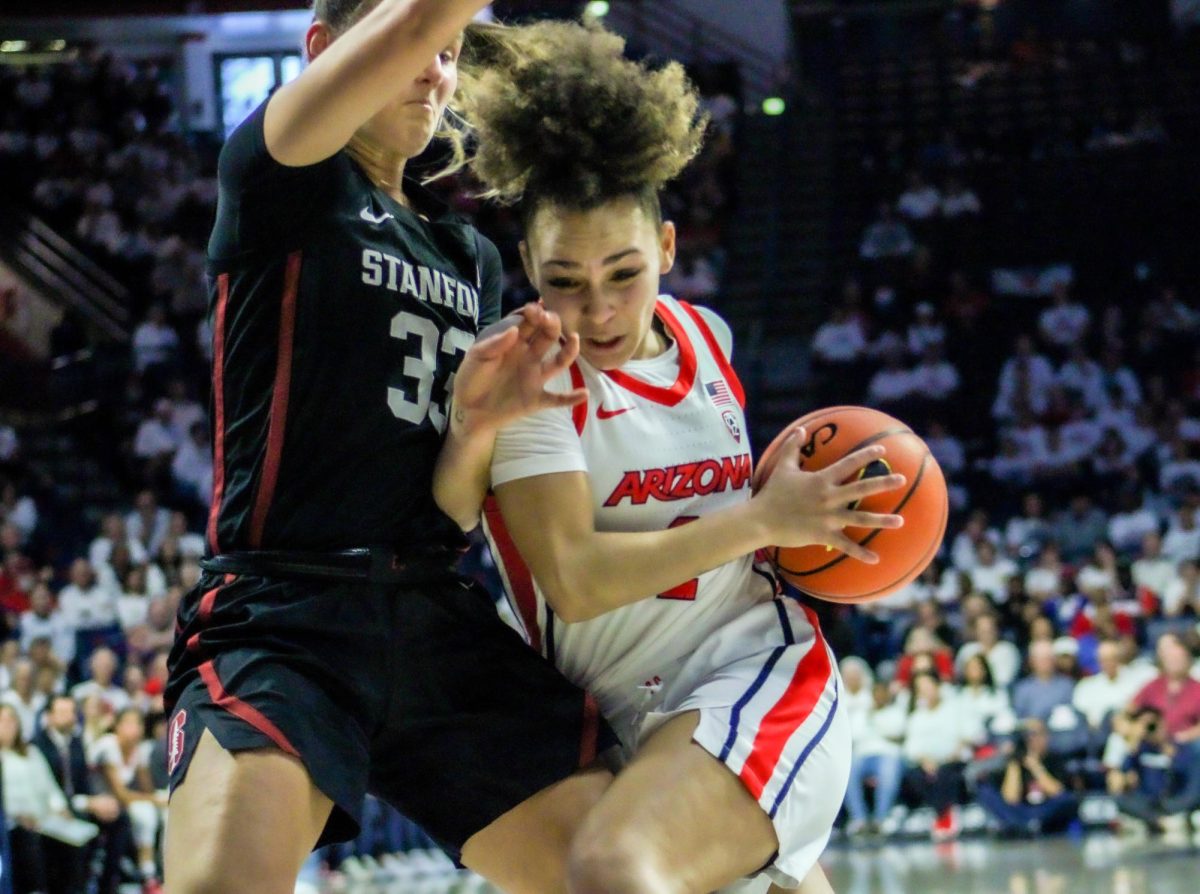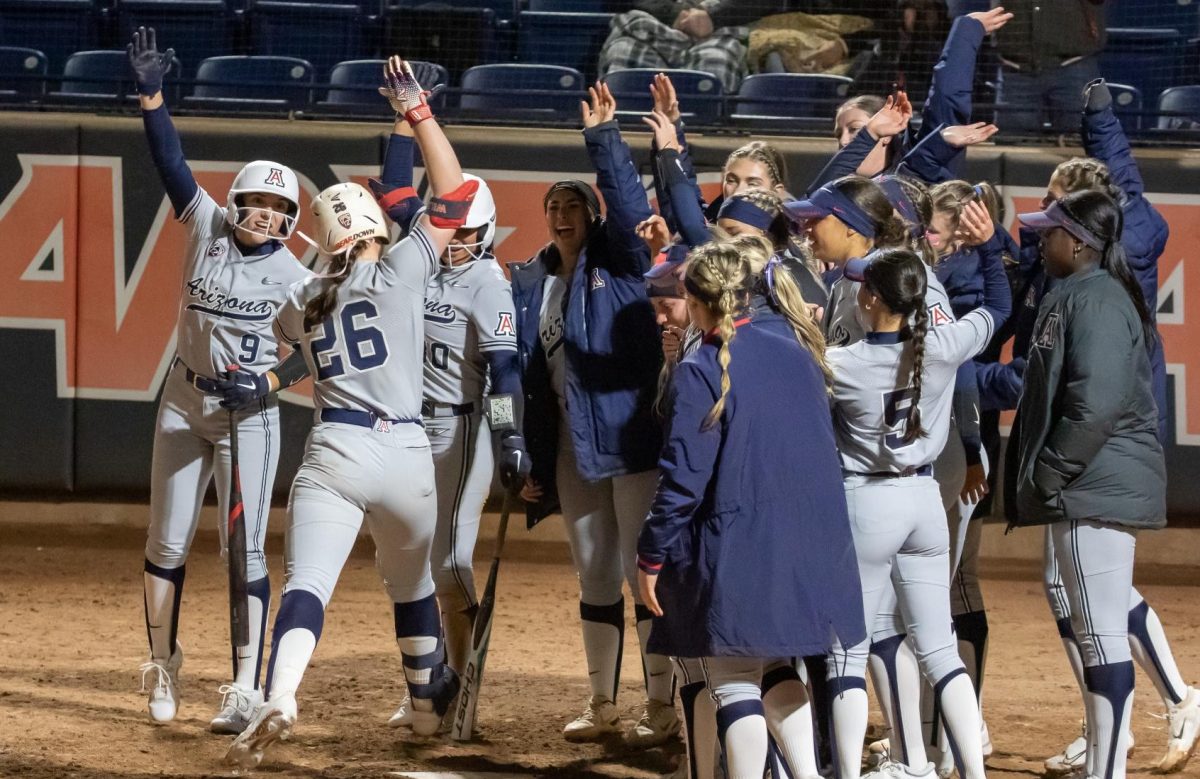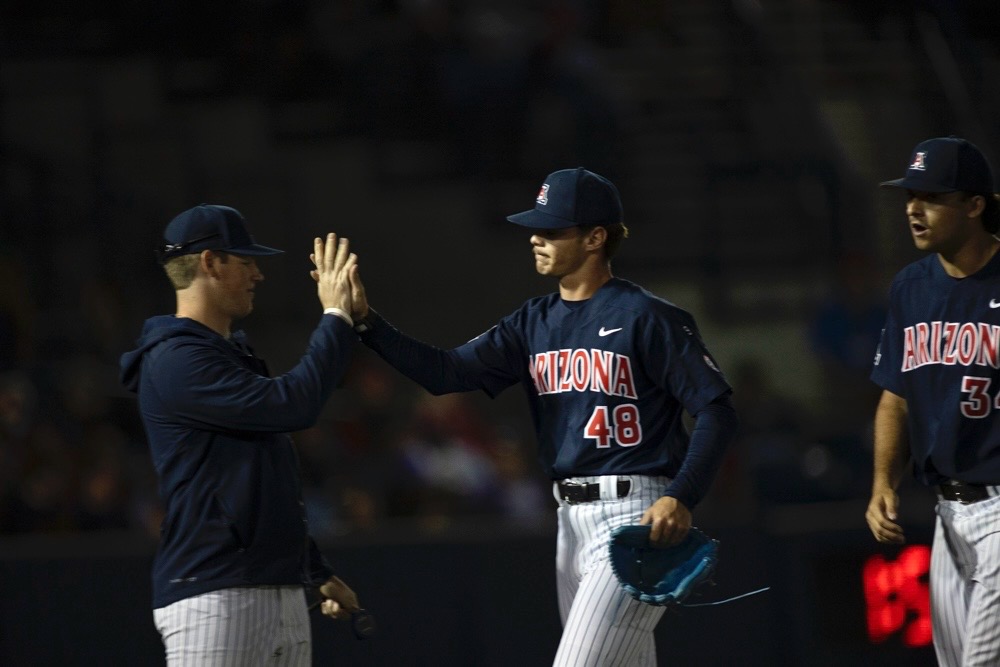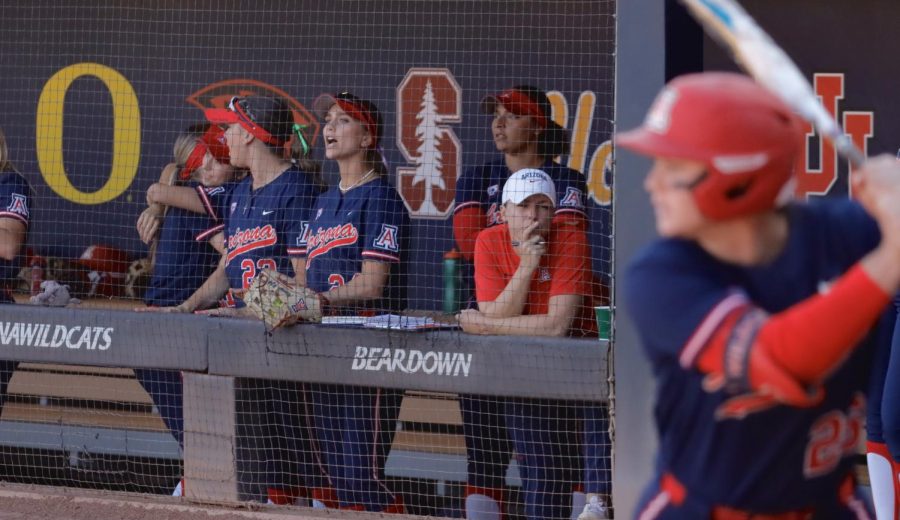Perseverance is a necessary human trait. Without it, we fall and fail to stand again, we concede in times of hardship and are unable to continue with life’s ultimate goals.
Perseverance takes courage, the will to fight, and most importantly, the foresight that a brighter future is ahead.
Arizona women’s basketball assistant coach Sue Darling has been dealt a few bad hands, but her perseverance led to the biggest accomplishment of her life.
She is a survivor.
On Feb. 6, 2002, Darling was diagnosed with breast cancer while living in Denver. Until her bout with the disease, Darling had been a coach for 20 years and had always lived every day to its fullest.
“”My whole life I’ve been in ‘thrive’ mode,”” Darling said. “”You go out, you play basketball, you go to college and you’re thriving. But at that point, I had to take a step back and just take it one day at a time.””
Darling went into survival mode.
She had to face each day as it came to her during a year of treatment. It was hard for her not to look toward the coming days and months, but she knew she had to stay set on beating the disease day by day.
The hardships of her condition, however, also made her stronger.
“”(Cancer) changes everything.”” Darling said. “”It changes basketball, it changes life and it changes how you view your relationships. It’s one of those things where it’s a life-altering experience.””
Despite being in survival mode, Darling took a job offer with Northwestern University as an assistant basketball coach and decided to forgo the rest of her treatment in Denver, instead electing to finish the second half of it in Chicago.
But her return to basketball was short-lived; she soon realized that while struggling with cancer, maybe basketball wasn’t the only option for her.
She decided to become a police officer.
“”I got to a point where I was like, ‘Why am I a basketball coach?’ and I couldn’t remember why,”” she said. “”You know, you don’t want to think about dying, but you say to yourself, ‘I don’t want to die without figuring out what I’m really passionate about.'””
Even though her time as a police officer was fulfilling, it made her realize that coaching basketball was truly what she was meant to do.
Darling returned the UA, her alma mater, two years ago to take an assistant coaching position under then-freshman head coach Niya Butts.
Having played on the women’s basketball team during her years as a student made the jump even more special.
“”I think awesome is exactly the right word. It’s just like, ‘I don’t believe it.’ I played on this court,”” Darling said. “”It’s unbelievable. It’s really cool for me to get back on campus, and just walk around, and go have lunch in the Student Union and stuff like I used to do.””
“”It’s just so neat to see kids wearing Arizona stuff and especially my (players) wearing Wildcats stuff. You know, we’re all Wildcats.””
Darling prides herself on mentoring her Wildcats.
She came into this season with 25 years of experience, which Butts said is vital to the organization.
Along with coaching, Darling also has a part in every home game during the halftime show with her program, Sue’s Corner, when Darling often interviews campus athletes and administrators, giving her humorous twist about the goings on around campus. During the Stanford game on Saturday, her final episode of the season, Darling suggested that the only thing that gets her through the ending of an Arizona basketball season is Arizona softball and the ballpark nachos that come with it.
“”The players all love her, she has a great sense of humor,”” Butts said. “”She means a lot to us. She brings something different to the coaching staff, and she’s a coach that played here and really has a passion for what we’re doing.
“”She wants to rebuild and help the program.””
Pink for perseverance
In 2007, the Women’s Basketball Coaches Association created the “”Pink Zone,”” an organization spearheaded by Kay Yow, a breast cancer survivor and the former head coach at North Carolina State University, to raise breast cancer awareness in college campuses and communities throughout the nation.
The Arizona Wildcats have been part of the “”think pink”” initiative since its inception and have held their now-annual “”Pink Zone”” game for the last three years.
This year’s game was held on Feb. 16, a little over four years since Darling’s original diagnosis, during a home contest against the Cal State Northridge Matadors.
The Wildcats came into the game donning pink headbands with the insignia “”SD”” on them in honor of Darling.
It meant a lot to her, but the reason behind wearing pink is the most meaningful.
“”There are obviously a lot of women, you know, people have had aunts and grandmothers who have been affected by breast cancer, so I think it’s a big deal,”” Darling said. ””But there are also a lot of basketball coaches that have been affected by breast cancer. My team, they all know somebody, but also to have a coach that had breast cancer, it makes it a little different for those kids.””




